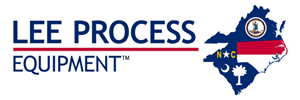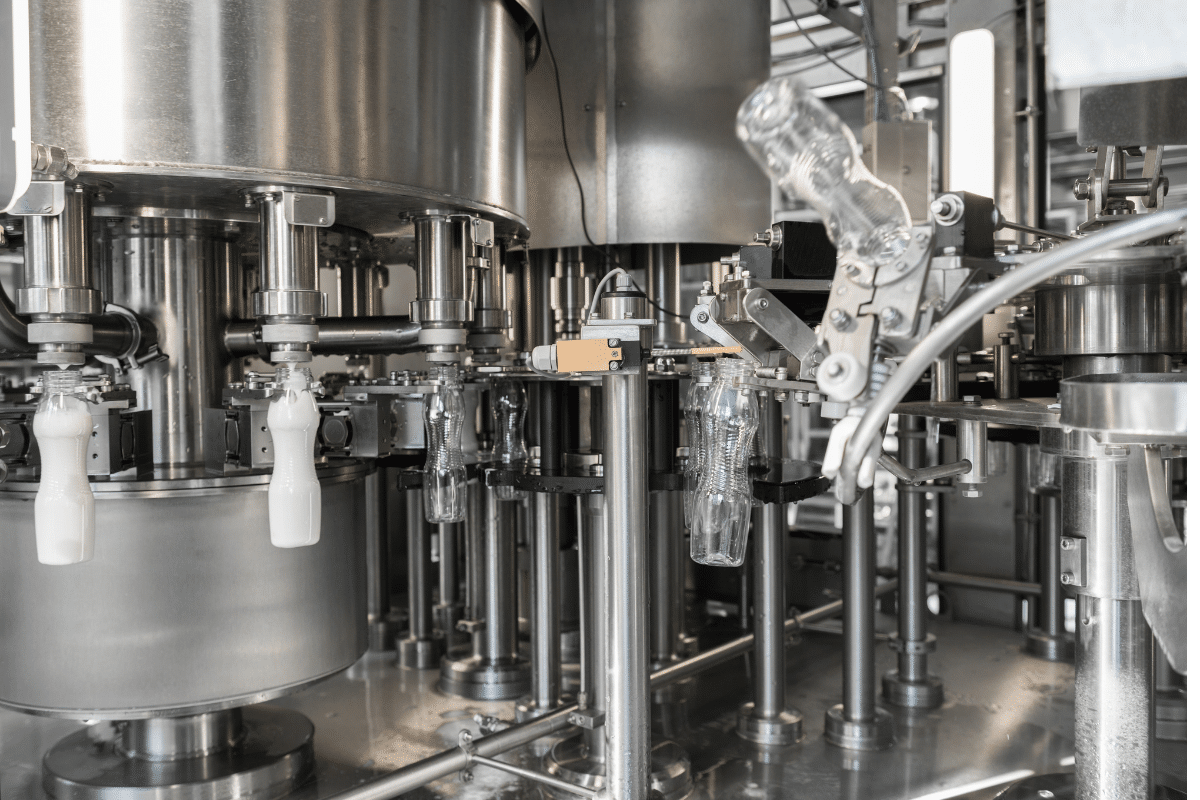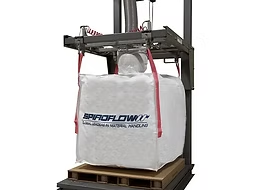Process Engineering Consulting: Your Blueprint for Industrial and Manufacturing Success
Choosing the right process engineering consulting firm can unlock significant cost reductions, boost throughput, and ensure strict regulatory adherence for your operations in the food, chemical, plastics, and agricultural sectors. This guide will walk you through what process engineering consulting involves, the key factors for selecting a trusted partner, specialized solutions for various industries and services, how to leverage case studies for informed decisions, answers to common client questions, and why Lee Process Equipment – Process Equipment and Consulting Services is your premier choice for manufacturing and industrial clients throughout North Carolina, South Carolina, and Virginia.
What is Process Engineering Consulting and Why Does It Matter?
Process engineering consulting offers expert analysis, design, and optimization of your manufacturing workflows to elevate efficiency, enhance product quality, and ensure compliance. By meticulously examining process flows, selecting the optimal equipment, and refining control strategies, our consultants pinpoint bottlenecks and implement targeted solutions that deliver measurable cost savings and robust operational resilience.
What Does a Process Engineering Consultant Actually Do?
A process engineering consultant dives deep into your existing operations, crafts detailed process flow diagrams, specifies the right equipment, and applies data-driven optimization techniques. Our core activities include:
- Conducting thorough gap analyses to pinpoint areas for improvement
- Designing precise process control strategies for consistent, high-quality output
- Providing expert advice on equipment upgrades and seamless integration
- Implementing lean manufacturing principles and advanced automated monitoring systems
These services lay the groundwork for streamlined production and a culture of continuous improvement.
What Are the Key Advantages of Partnering with Process Engineering Consulting Firms?
Engaging specialized consultants brings a wealth of benefits:
- Elevated throughput through optimized workflows
- Reduced operational expenses via smart energy and material savings
- Consistently enhanced product quality and higher yield rates
- Accelerated scale-up from pilot stages to full production
- Guaranteed compliance with stringent industry regulations (FDA, OSHA, EPA)
This research directly validates our claims about the tangible cost savings and operational resilience achievable through expert process engineering consulting, particularly in areas like energy and material efficiency and throughput enhancement.
These results are crucial for driving profitability and maintaining a competitive edge in highly regulated industries.
How Does Process Engineering Consulting Elevate Manufacturing and Industrial Processes?
Process engineering consulting harnesses the power of data analytics, lean methodologies, and deep equipment knowledge to drive significant improvements across your critical process stages. The table below illustrates typical enhancements we deliver:
| Improvement Phase | Enhancement Method | Typical Outcome |
|---|---|---|
| Raw Material Handling | Automated feeding and precise batching control | 15% reduction in process variation |
| Reaction & Mixing | Advanced mixing nozzle technology and P&ID optimization | 10% increase in product yield |
| Heat Transfer | High-efficiency heat exchangers and integrated energy recovery systems | 12% savings in energy costs |
| Packaging & Finishing | Integrated quality sensors and optimized line balancing | 20% gain in production throughput |
These targeted interventions pave the way for a more in-depth examination of selection criteria.
Key Considerations When Selecting a Process Engineering Consulting Company
Choosing the right partner hinges on their specialized expertise, understanding of your regional landscape, proficiency in equipment integration, and proven methodologies. A thorough evaluation of these aspects ensures perfect alignment with your plant’s technical requirements and regulatory environment.
How Does Industry Experience Impact Your Consultant Choice?
Consultants with deep sector-specific backgrounds intuitively grasp unique challenges – from stringent hygiene standards in food processing to complex reaction kinetics in chemical manufacturing, precise melt flow control in plastics, and optimal storage conditions in agriculture. Their prior project experience significantly accelerates solution design and minimizes costly trial-and-error phases.
Why is Regional Expertise in NC, SC, and VA Crucial for Consulting Success?
Local firms possess invaluable knowledge of state-specific regulations, streamlined permitting processes, and established supply-chain networks. Their familiarity with regional utilities, available labor pools, and specific environmental mandates simplifies project approvals and enhances on-site coordination.
How Critical is Equipment Integration Knowledge in Process Engineering Consulting?
Profound equipment expertise is the bridge between innovative consulting and practical procurement. It ensures that new process designs integrate flawlessly with your existing mixers, heat exchangers, pumps, and control systems. This synergy minimizes installation errors and dramatically speeds up commissioning.
What Methodologies and Approaches Should a Leading Consulting Firm Employ?
| Approach | Focus Area | Core Benefit |
|---|---|---|
| Lean Manufacturing | Eliminating waste and optimizing value streams | Increased throughput, reduced inventory levels |
| Six Sigma | Reducing variation and controlling defects | Enhanced product quality and consistency |
| Process Intensification | Innovating equipment and reaction processes | Smaller operational footprints, lower energy demands |
| Digital Twin & Analytics | Real-time monitoring and predictive feedback | Proactive maintenance, faster issue resolution |
These advanced methodologies form the backbone of our service offerings across all industries.
This citation strongly supports our discussion on Digital Twin & Analytics as a key methodology for predictive maintenance and accelerated troubleshooting, underscoring its role in driving tangible improvements in critical process stages.
Evaluating Industry-Specific Process Engineering Consulting Services
Each sector presents unique demands that require tailored solutions. Understanding these specific challenges will help you assess a consultant’s suitability for your operations.
What Challenges Do Food Processing Companies Face, and How Can Consulting Help?
Food processors navigate stringent hygiene regulations, demanding shelf-life targets, and critical traceability requirements. Consultants excel at designing effective CIP systems, optimizing blanching and cooking cycles, and implementing HACCP-compliant control strategies to ensure product safety and minimize waste.
How Does Chemical Process Engineering Consulting Address Safety and Efficiency?
Chemical plants require specialized expertise in reactor design, precise heat exchanger sizing, and robust environmental controls. Consultants utilize advanced tools like CFD analysis, mass-balance validation, and thorough regulatory impact assessments to boost yield while rigorously safeguarding personnel and the environment.
What Solutions Do Plastics Industry Consultants Offer for Manufacturing Optimization?
In the plastics industry, achieving precise melt-flow control and accurate additive blending is paramount. Consulting services include optimizing extruder screw profiles, refining die designs, and implementing real-time viscosity monitoring to significantly increase throughput and reduce scrap rates.
How Can Agriculture Process Engineering Consulting Enhance Production and Compliance?
Agricultural processors often grapple with challenges in storage, drying, and packaging, especially under fluctuating moisture conditions. Consultants implement scalable drying solutions, efficient fiber-separation equipment, and robust USDA/FSIS compliance frameworks to elevate product quality and minimize spoilage.
Essential Service-Specific Consulting Solutions for Performance Gains
Beyond industry specifics, certain consulting services deliver universal improvements in performance and profitability.
How Does Process Optimization Consulting Drive Cost Reduction and Efficiency?
Process optimization consulting employs lean principles, sophisticated process simulation, and detailed throughput analyses to pinpoint high-impact improvement opportunities. By reorganizing workflows, balancing production lines, and fostering a cycle of continuous improvement, companies typically achieve 10–20 percent in cost savings.
Why Is Equipment Selection and Integration Consulting Vital for Industrial Success?
Expert guidance in selecting the right pumps, valves, and instrumentation prevents costly mismatches that lead to operational downtime. Consultants conduct comprehensive lifecycle cost analyses and rigorous integration testing to ensure the deployment of reliable, easily maintainable systems.
What Role Does Process Design and Scale-Up Consulting Play in Manufacturing Growth?
Process design and scale-up services are essential for translating laboratory-scale experiments into robust, high-volume production lines. Consultants develop modular designs, conduct thorough pilot studies, and perform detailed risk assessments to effectively manage technical uncertainties during capacity expansion.
How Can Regulatory Compliance Consulting Ensure Adherence to Industry Standards?
Consultants specializing in FDA, OSHA, and EPA requirements conduct meticulous process audits, prepare comprehensive documentation, and deliver targeted staff training. Their interventions significantly reduce audit findings and provide crucial protection against fines or operational shutdowns.
Integrating regulatory compliance checks early in the product development lifecycle can dramatically reduce potential costs, with some studies indicating savings of approximately 30% in redesign expenses. Engineering design consultants are indispensable, bringing a deep understanding of complex regulations (e.g., OSHA, NFPA, EPA) and implementing essential hazard assessments and pollution control measures to ensure full adherence and mitigate risks.
This research strongly supports our emphasis on regulatory compliance consulting as a vital service that not only reduces audit findings and safeguards against penalties but also directly contributes to profitability and competitiveness in regulated sectors.
How Case Studies and Success Stories Aid Your Consulting Company Selection
Real-world examples offer compelling evidence of a firm’s ability to deliver measurable results, showcase their cross-sector expertise, and highlight strategic insights you can directly apply to your own operations.
What Are Tangible Examples of Process Engineering Consulting Delivering Results?
| Industry | Challenge | Result |
|---|---|---|
| Chemical Manufacturing | High energy consumption in reaction heating processes | 15% energy reduction achieved through optimized heat-integrated exchangers |
| Food Processing | Inconsistent batch yields in sauce blending operations | 12% yield improvement via mixer redesign and control system upgrade |
| Plastics Extrusion | Frequent line stoppages due to melt viscosity variations | 18% uptime gain realized with implementation of real-time viscosity monitoring |
How Do Case Studies Demonstrate Industry-Specific Expertise?
Case studies provide clear evidence of technical depth within specific sectors, such as hygienic design for food plants, optimal static mixer selection for chemical processes, and throughput enhancement for extrusion lines. They serve as validation of a consultant’s intimate understanding of your unique production constraints.
What Metrics Should You Prioritize in Consulting Success Stories?
Look for case studies that clearly report quantifiable outcomes like cost savings, efficiency gains, quality improvements, and successful compliance initiatives. Metrics such as percentage yield increase, reduction in downtime hours, and return on investment timelines vividly illustrate the tangible value delivered by expert consulting services.
Common Inquiries About Process Engineering Consulting Firms
Prospective clients frequently ask about fee structures, project timelines, quality assurance protocols, and industry specializations to ensure a good fit and facilitate accurate budget planning.
What Are the Typical Costs for Process Engineering Consultants?
Consultant fees are influenced by project scope and the level of expertise required. Standard billing rates typically range from $150 to $300 per hour for senior engineers. Fixed-fee arrangements are also common for well-defined deliverables, such as Process Flow Diagrams (PFDs), mass-balance studies, or comprehensive process audits.
What Is the Standard Timeline for Consulting Projects?
Project durations are directly related to complexity. Simple process audits can often be completed within 4–6 weeks, while comprehensive design and implementation projects may extend from 6–12 months, encompassing pilot testing, equipment procurement, and final commissioning phases.
How Can You Assess the Quality of a Consulting Firm’s Services?
Evaluate credentials, including Professional Engineer (PE) licensure and relevant professional certifications. Review client success stories and the technical quality of their deliverables. Requesting references is also highly recommended. Top-tier firms will present clear project plans, provide data-driven recommendations, and prioritize knowledge transfer to your internal team.
Which Industries Most Frequently Utilize Process Engineering Consulting Services?
Industries that commonly engage process engineering consultants include food and beverage, specialty chemicals, plastics manufacturing, pharmaceuticals, and agriculture. Companies in these sectors rely on expert guidance to maintain stringent compliance, optimize production yields, and effectively manage cost pressures.
How Lee Process Equipment Excels as Your Process Engineering Consulting Partner
Lee Process Equipment uniquely combines deep equipment expertise with specialized process engineering to deliver comprehensive, turnkey solutions across North Carolina, South Carolina, and Virginia.
What Distinct Value Does Lee Process Equipment Bring to NC, SC, and VA?
Our strong regional presence ensures rapid on-site support, an in-depth understanding of state-specific regulations, and established relationships with local vendors, all of which expedite project approvals and equipment deliveries.
How Does Lee Process Equipment Seamlessly Integrate Equipment Sales with Expert Consulting?
By bringing together seasoned process engineers and equipment specialists under one roof, we ensure that equipment selection is perfectly aligned with process design objectives. This integrated approach offers streamlined procurement, expert installation oversight, and thorough performance validation, significantly minimizing project risk.
What Industries Does Lee Process Equipment Specialize In?
Lee Process Equipment proudly serves the food, chemical, plastics, and agriculture sectors. We tailor solutions ranging from sanitary mixing systems to custom reactor skids and advanced drying towers, meticulously designed to meet the exacting standards of each industry.
How Can You Connect with Lee Process Equipment for a Consultation?
To initiate a discussion about your next process improvement initiative, please visit Lee Process Equipment – Process Equipment and Consulting Services or contact our engineering team directly. We can provide a customized proposal and project roadmap within days.
Achieving enhanced efficiency, ensuring compliance, and enabling scalability are within your grasp when you partner with the right process engineering consultant. By prioritizing industry experience, regional insight, equipment integration proficiency, and proven methodologies, you significantly de-risk your next optimization project. Lee Process Equipment masterfully combines these critical strengths into a unified offering that has consistently delivered double-digit cost savings and throughput gains for clients across the Carolinas and Virginia. Begin your journey toward manufacturing excellence with a consultation that harmonizes strategic engineering guidance with the ideal equipment solutions.


